The Federal Bureau of Investigation (FBI) kept records on the American singer Michael Jackson, which were released under the Freedom of Information Act posthumously on December 22, 2009. In response to perceived threats against Jackson and allegations of child sexual assault made against him, the FBI made several investigations into Jackson, none of which led to charges.
Between 1993 and 2005, Jackson was investigated by California law enforcement agencies due to allegations of child abuse; the FBI provided technical and investigative assistance. They also investigated threats made against Jackson and others by Frank Paul Jones, who was later imprisoned. These investigations occurred between 1993 and 2005. The FBI found no evidence of criminal conduct on Jackson's part.
The FBI files comprise over 600 pages; 351 pages were released publicly, divided into eight parts. They include copies of letters from members of the public commenting on Jackson's performances, newspaper clippings, and various documents reporting that Jackson was the target of threats and extortion attempts. The files received extensive media coverage.
The FBI began monitoring Jackson in 1992, when they investigated death threats against him made by a man obsessed with Jackson's sister Janet. In 1993, following the first allegations of child sexual assault by Jackson, FBI agents began looking into Jackson's alleged involvement with young children; the FBI investigations continued for almost 10 years. [1]
In 2004, the FBI assisted with investigations into child abuse allegations against Jackson. At Jackson's trial in 2005, Santa Maria law enforcement contacted the FBI as they feared the trial could be a "soft target" for terrorism. According to the files, the FBI ended its investigations into Jackson in 2005 and found no evidence of criminal conduct on his part. [1] The FBI files released on Jackson comprise eight parts. [2]
Part one consists of 10 pages, primarily legal documents and tabloid newspaper clippings. [2] The clippings allege that Jackson and the British DJ Terance George had phone sex in 1979 when Jackson was 20 and George was 13. The FBI files show that it was George who contacted Jackson and that George had attempted to rekindle his friendship with Jackson when he visited London but was rebuffed by Jackson's security. [2]
In 2003, 10 years after George accused Jackson, he recalled his 1979 interview with him in Louis Theroux’s documentary Louis, Martin & Michael . He said the allegation was made "without my authority" and had developed from a close friend who "knew about the story". George told Theroux that "the majority" of the allegations were true, but that the newspapers had "twisted" and sensationalized them. [3] [4] [5] With no proof, no recorded phone call, no lawsuits filed and nothing reported to law enforcement, Legat London and the FBI took no further action. [2]
Part two consists of 44 pages about the forensics analysis of Jackson's computers and hard drives. [6] During investigatory raids on Jackson's properties in 2003, [7] 16 hard drives were confiscated in total. What the FBI's Computer Analysis Response Team (CART) found on these hard drives was in a report addressed to Sheriff Jim Anderson, dated April 5, 2004. [6] The FBI found nothing incriminating on the drives, and the computer history contained no record of accessing or searching for illegal material. [8] [9] On March 29, 2004, CART forwarded 4 DVDs to the Forensic Audio Video Image Analysis Unit (FAVIAU) with file formatting problems and requested that the files be converted to a readable format. Sometime after the conversion, it was noted that there were no "outstanding leads or evidence items". [6]
Part three consists of 59 pages providing an early timeline for the first child abuse allegations against Jackson. On September 8, 1993, the Los Angeles Police Department (LAPD) asked the FBI to help prosecute Jackson under the Mann Act, also known as the White-Slave Traffic Act. [10] The law prohibits the transportation of anyone over state borders for the purpose of illegal sexual acts and was first used as a tool for political prosecution against the boxing champion Jack Johnson. [11] On September 8, 1993, the United States Attorney declined to prosecute Jackson for violating the Mann Act. [10]
The remaining pages cover various allegations against Jackson throughout 1993, with many pages replicated from part one of the files. Other allegations tracked in newspaper clippings include detectives traveling to the Philippines to interview a couple who used to work for Jackson. Their claims were dismissed as not credible due to a dispute over back pay. [12]
Other accusations include a claim that Jackson sexually molested two Mexican boys in 1985 or 1986. The writer, whose name is redacted, said that the allegation was being investigated by the FBI and alleged that the government assisted in a cover-up because Jackson was to receive an honor in 1984 from the President at the White House. After checking their archives and investigating themselves, the FBI concluded that no such reference was found. [10]
Part four consists of nine pages on the analysis of a multi-generational poor-quality VHS tape seized by US Customs in West Palm Beach, Florida, in 1995. The tape was labeled "Michael Jackson’s Neverland Favorites An All Boy Anthology"; the files do not mention that Jackson owned the tape or had any connection to it. The investigation of whether it contained child pornography was concluded on January 24, 1997. No charges were filed. [13] [14] [15]
Part five consists of 18 pages covering a brief timeline of the 2003–2005 accusations from an indictment, to arrest, to CART and the FBI's investigatory assistance, to the trial's acquittal. [16] The documents reveal that police in Santa Barbara, where Jackson stood trial, contacted the FBI because they feared he might become a terrorist target. At the molestation trial, the FBI concluded there was little risk. They noted that a Nation of Islam follower and a New Black Panther Party member attended one court appearance. Both parties remained unnamed in the file. [16] [17] Jackson was acquitted of all charges on June 13, 2005. [18] [19] [20]
Part six, the largest, consists of 199 pages. [21] It covers death threats against Jackson and others by Frank Paul Jones, who served two years in prison for sending a letter that read: "I am going to Washington, D.C., to threaten to kill the president of the United States, George Bush." The letter also threatens Jackson; Jones wrote: "I will personally attempt to kill if he doesn't pay me my money." [22] Jones was arrested for trespassing on June 22, 1992, at the Jackson family compound in Encino, California. [23]
Part seven, the shortest, consists of five pages. It covers the investigators’ attempt to pursue the 1993 accuser as a second case to coincide with the 2003 accuser. After a meeting in June 2004 between Santa Barbara Assistant District Attorneys (SBADAs) and the FBI's Behavioral Analysis Unit (BAU), it was concluded that a federal case could still be pursued with the 1993 accuser. A conference call was held on August 30, 2004, when it was agreed that Santa Maria RA should open a case on the 1993 accuser. [24]
A meeting was held in New York in an attempt to persuade the 1993 accuser to testify for the 2005 trial. The 1993 accuser informed the two agents in the meeting that he would not testify against Jackson and would "legally fight any attempts to do so". [25] [26] A document dated December 9, 2004, indicates that the case was closed, citing "no outstanding leads or evidence items". [24]
News media began covering the content of the FBI files after they were released on December 22, 2009. These outlets included The Guardian , USA Today , Variety , MTV, CNN, Billboard , ABC News, CBC News, BBC, France 24, and Reuters. [13] [22] [23] [27] [28] [1] [29] [30] [31] Brian Oxman, a former lawyer for the Jackson family, said the files contained no evidence that Jackson committed any crime and that it was "a vindication". [27] A former FBI investigator said that due to local law enforcement's limited capabilities, it was common that the FBI get involved as they were well-resourced to assist in such manners. [27]
In 2013, a London tabloid, the Sunday People , alleged that "secret FBI files" revealed that Jackson had paid millions in hush money to dozens of boys he had abused. The reports were received with skepticism. CNN Special Investigations reporter Drew Griffin said it "sounds like recycled tabloid reports from 20 years ago". Thomas Mesereau, Jackson's 2005 criminal defense attorney, said that these claims were not in the FBI files and dismissed the report as "a bunch of utter nonsense". Diane Dimond, a critic of Jackson, said: "It is obvious the paper took this old story and proceeded to make it seem new by adding numbers to it ... The problem is there's no evidence to back up the claim that Jackson made that many payoffs." [32]

Robert Sylvester Kelly is an American singer, songwriter, record producer and convicted child sex offender. He has been credited with prolific success in both R&B and hip hop, earning nicknames such as "the King of R&B", "the King of Pop-Soul", and the "Pied Piper of R&B".

The Council on American–Islamic Relations (CAIR) is a Muslim civil rights and advocacy group. It is headquartered on Capitol Hill in Washington, D.C., with regional offices nationwide. Through civil rights actions, media relations, civic engagement, and education, CAIR's stated purpose is to promote social, legal and political activism among Muslims in America.

James Anthony Traficant Jr. was an American politician and convicted felon who served as a Democratic member of the United States House of Representatives from Ohio. A staunch economic populist known for his flamboyant personality, he represented the 17th congressional district, which centered on his hometown of Youngstown and included parts of three counties in northeast Ohio's Mahoning Valley.
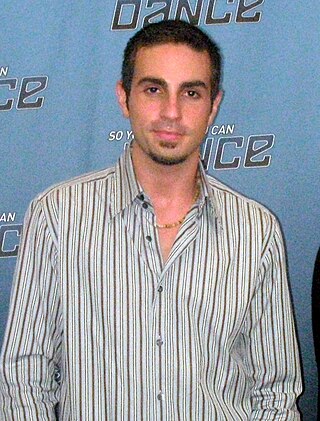
Wade Jeremy William Robson is an Australian dancer and choreographer. He began performing as a dancer at age five, and has directed music videos and world tours for pop acts such as NSYNC and Britney Spears. Robson was the host and executive producer of The Wade Robson Project, which aired on MTV in 2003. In 2007, he joined the Fox television dance series So You Think You Can Dance as a guest judge and choreographer. He won a Primetime Emmy Award for Outstanding Choreography for the dance number "Ramalama " of So You Think You Can Dance.
People v. Jackson was a 2005 criminal trial held in Santa Barbara County Superior Court in Santa Maria, California. The American pop singer Michael Jackson was charged with molesting Gavin Arvizo, who was 13 years old at the time of the alleged abuse, at his Neverland Ranch estate in Los Olivos, California.

Living with Michael Jackson is a television documentary in which the British journalist Martin Bashir interviewed the American singer Michael Jackson from May 2002 to January 2003. It was broadcast in the United Kingdom on ITV on 3 February 2003, and in the United States three days later on ABC, introduced by Barbara Walters. Jackson took Bashir on a tour of his home, Neverland Ranch, and discussed his family, unhappy childhood, plastic surgery and relationships with children.

Peter J. Nygård is a Finnish-Canadian businessman and former fashion executive. In 1967 he founded Nygård International, a Winnipeg-based company that initially was a sportswear manufacturer before producing women's apparel. He was rated the 70th richest Canadian by Canadian Business Magazine in 2009, with a net worth of C$817 million, while in 2017 his net worth was estimated to be C$900 million.
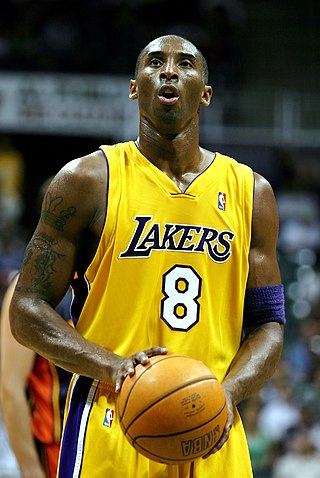
The Kobe Bryant sexual assault case began on July 18, 2003, when the news media reported that the sheriff's office in Eagle, Colorado, had arrested then professional basketball player Kobe Bryant in connection with an investigation of a sexual assault complaint, filed by a 19-year-old hotel employee.
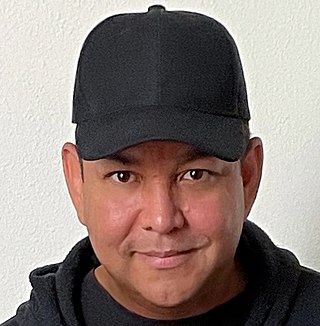
Tariano Adaryll "Taj" Jackson II is an American singer, songwriter, producer, and director. He is an original member of 3T along with his brothers; Taryll Adren Jackson and Tito Joe ("TJ") Jackson. His career and solo work include a reality television series for which he was executive producer. His band 3T currently still tours, and he works as a spokesperson on behalf of the Jackson family.

Michael Joseph Jackson was an American singer, songwriter, dancer, and philanthropist. Known as the "King of Pop", he is regarded as one of the most significant cultural figures of the 20th century. During his four-decade career, his contributions to music, dance, and fashion, along with his publicized personal life, made him a global figure in popular culture. Jackson influenced artists across many music genres. Through stage and video performances, he popularized complicated street dance moves such as the moonwalk, which he named, as well as the robot.
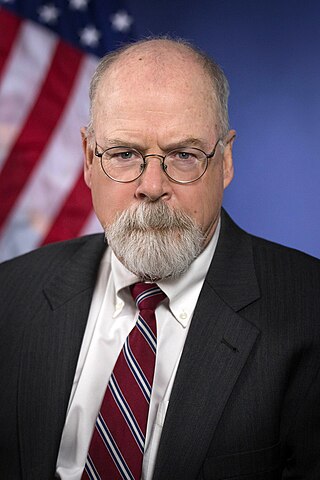
John Henry Durham is an American lawyer who served as the United States Attorney for the District of Connecticut from 2018 to 2021. By April 2019, the Trump administration assigned him to investigate the origins of the Federal Bureau of Investigation (FBI) investigation into Russian interference in the 2016 U.S. elections, and in October 2020 he was appointed special counsel for the Department of Justice on that matter.
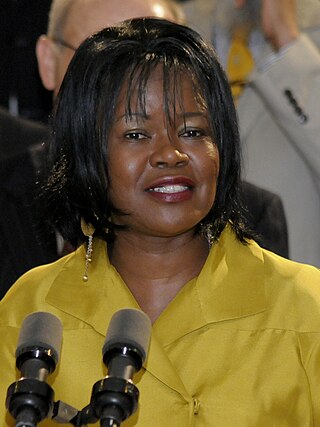
Dianne Wilkerson is a former Democratic member of the Massachusetts Senate, representing the 2nd Suffolk District from 1993 to 2008.
The American pop musician Michael Jackson faced allegations of child sexual abuse in 1993 and 2003. Additional claims emerged posthumously.
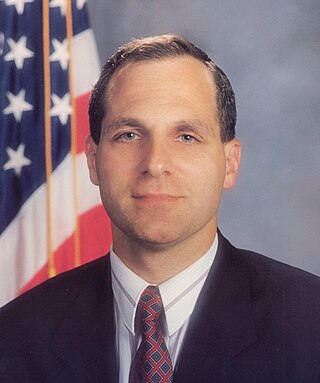
Louis Joseph Freeh is an American attorney and former judge who served as the fifth Director of the Federal Bureau of Investigation from September 1993 to June 2001.

Diane Dimond is an American investigative journalist, author, syndicated columnist, and TV commentator.

The USA Gymnastics sex abuse scandal relates to the sexual abuse of hundreds of gymnasts—primarily minors at the time of the abuse—over two decades in the United States, starting in the 1990s. More than 500 athletes alleged that they were sexually assaulted "by gym owners, coaches, and staff working for gymnastics programs across the country", including USA Gymnastics (USAG) and Michigan State University (MSU). It is considered the largest sexual abuse scandal in sports history.

Leaving Neverland is a 2019 documentary film directed and produced by the British filmmaker Dan Reed. It focuses on two men, Wade Robson and James Safechuck, who allege they were sexually abused as children by the American singer Michael Jackson. Their allegations are the subject of a recent legal ruling, Safechuck v. MJJ Productions, clearing the way for a trial of their long-running claims.

Square One: Michael Jackson is a 2019 investigative documentary directed by Danny Wu. It focuses on the 1993 case in which Michael Jackson was accused of molesting a 13-year-old boy. Through interviews with people closest to the case, the film makes a case for Jackson's innocence. The interviews showcase statements from trial witnesses, Jackson's nephew, and legal assistant to the prosecutor in 1993.
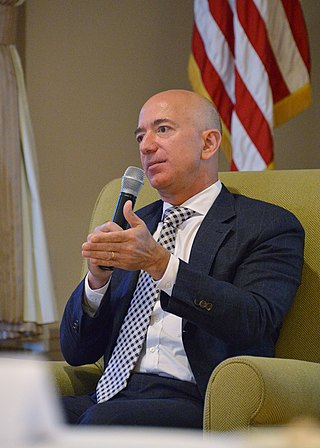
In January 2020, the FTI Consulting company claimed that in May 2018 with "medium to high confidence" the phone of Jeff Bezos had been hacked by a file sent from the WhatsApp account of the crown prince of Saudi Arabia, Mohammed bin Salman. The Saudi Arabian embassy to the United States has denied the allegations. Billionaire Jeff Bezos, the owner of The Washington Post newspaper and founder of the company Amazon, engaged FTI Consulting in February 2019 after the National Enquirer in January 2019 reported details of Bezos's affair. FTI Consulting did not link the National Enquirer to the hack. In December 2021, the FBI stated they could not find proof to substantiate claims that Saudi Arabia hacked Jeff Bezos phone, and has considered an investigation into those allegations a low priority.
The Finders were an intentional community and a cult founded in Washington, D.C. in the early 1970s by former United States Air Force Master Sergeant Marion Pettie (1920–2003).